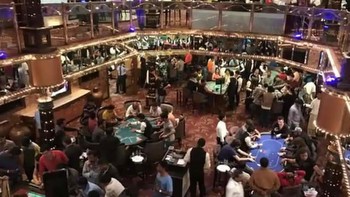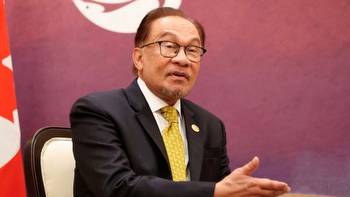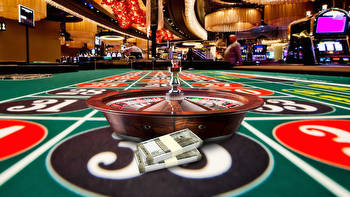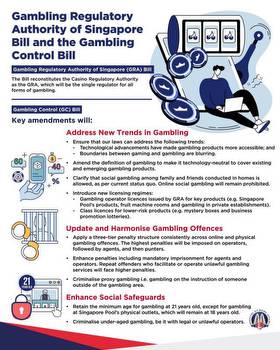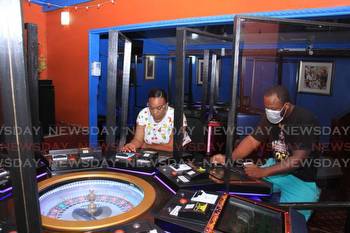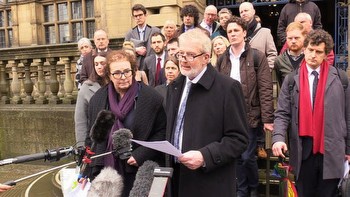Cash-strapped Govt eyes gambling riches

THE government has launched a renewed effort to establish a national lottery to generate funds for various social welfare programmes.
This was confirmed by the minister of environment, forestry and tourism, Pohamba Shifeta, who says the government also wants to regulate the lottery and gambling industry, which is estimated to involve more than 20 000 illegal slot machines.
The idea of a state lottery has been on the government's books as long ago as 1994, when it was first approved by the Cabinet.
However, the lottery law was only passed by the parliament in 2017.
To implement this law – called the Lotteries Act of 2017 – Shifeta's ministry appointed a six-member board last year, which will be responsible for the issuing of lottery licences and for establishing the State Lottery Trust Fund.
This board is headed by Micheal Mutonga as chairperson, and is deputised by Tabitha Mbome.
Other members of the board are Herlinde Alcock, Charlotte Kapose, Wycliff Shillifa, and Immanuel !Hanabeb.
Shifeta this week told The Namibian the law provides for the government to operate a national lottery to generate funds for the state.
“They can operate the state lottery themselves, or they can outsource the operation if there is a need. The lottery would be a new revenue stream for the government. All lotteries already in operation will be regulated and they will be given time to register,” he said.
According to the law, proceeds from the national lottery would be channelled to various government activities, including funding educational and sport institutions.
The minister said the government has also started with the strict implementation of the law regulating gambling activities in the country.
A new board, called the Gambling Control Board, was established last year to oversee the gambling industry.
It is led by Ben Shikongo as chairperson, and deputised by Toska Sem.
Other members of the gambling board are Erastus Johannes, Josua Kaumbi, Sandra !Owoses, Amanda Heydenreich, and Uerijeta Kauaria.
Shifeta said under the gambling law, all gambling establishments and slots will be required to be registered.
He said once the alot machines are registered, they will be connected to a central monitoring system which will monitor all significant events associated with gambling machines.
This system will also help the government to determine the amount of tax to be paid by operators on slot machines.
“So whatever they are going to make from gambling will be recorded. The fiscus will know how much tax should be paid for each machine,” he said.
In 2018, there were 260 licensed slot machine operators in the country, of which six were casinos, while 254 were gambling houses.
These licensed operators had a total of 2 845 registered slot machines, which contributed N$22 million to the government's coffers annually.
The government estimates that more than 20 000 slot machines are currently operating illegally in the country.
Shifeta said this would be dealt with as there would be a database of all gambling machines brought into or manufactured in the country.
The minister, however, rejected the notion that state-sponsored gambling activities would encourage vulnerable members of the public to become dependent on gambling.
“There has been thorough consultations on whether we should allow gambling or not. But the truth is that it is already happening, and so many people are being cheated, and children are on the streets undertaking lottery activities which are unlawful.
“It would benefit the government more if it is regulated,” he said.
The minister said the government would ensure that measures are put in place to prevent ordinary members of the public from becoming addicted to gambling.
“The law provides for the court to prohibit people from gambling if they want to move away from gambling. The court would give an order which would be communicated to all gambling establishments.
“Apart from that a counselling process would be facilitated by the board to ensure we do not allow some social evils caused by gambling activities,” he said.
Herbert Jauch from the Economic and Social Justice Trust says gambling can be dangerous as it is addictive.
He says people at the periphery of society are more vulnerable to gambling, and if the government allows them to gamble their hard-earned cash, they would end up poorer than before.
“It is a known fact that gambling is dangerous to people who are already in distress. One must really look at gambling with a critical eye,” he says.



















